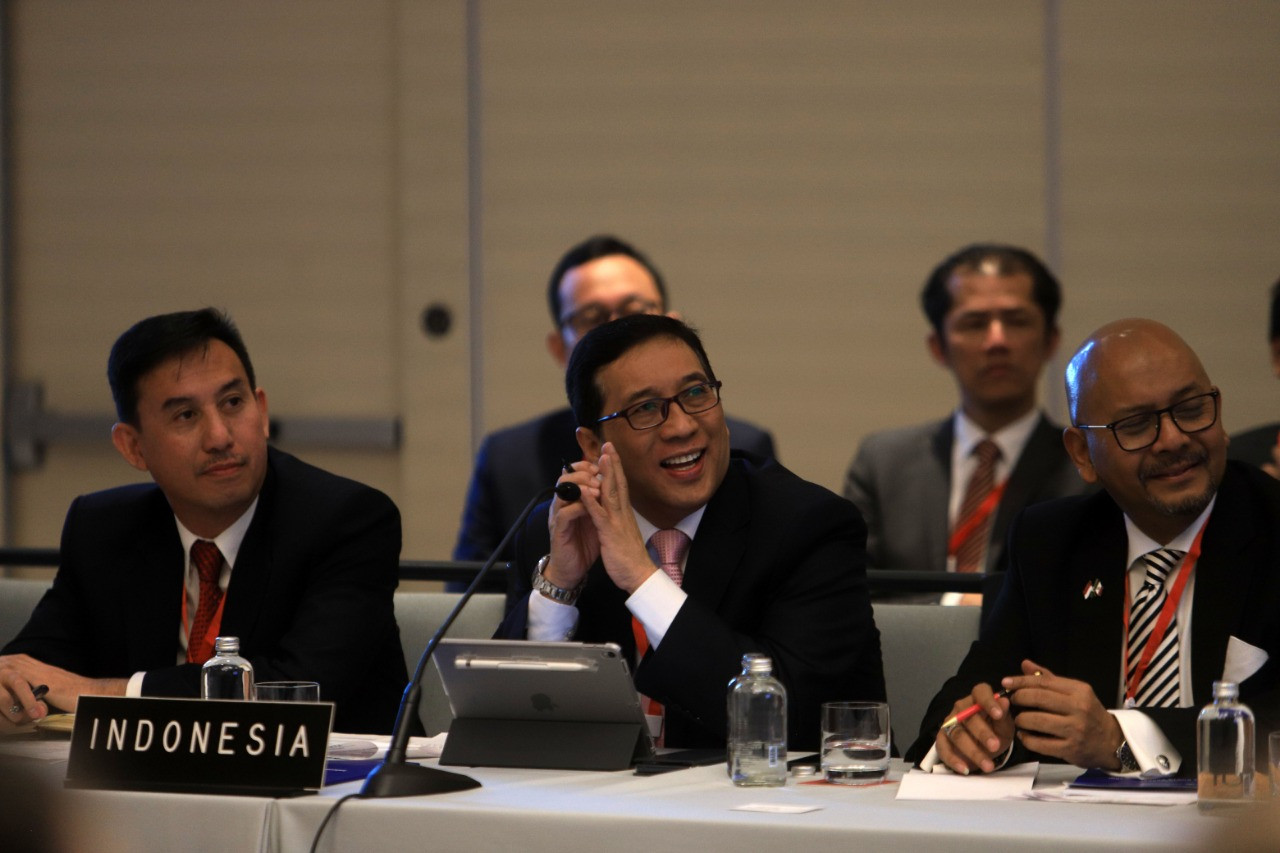Popular Reads
Top Results
Can't find what you're looking for?
View all search resultsPopular Reads
Top Results
Can't find what you're looking for?
View all search resultsCOVID-19 pandemic a ‘wake-up call’ for multilateralism, Indonesia's top diplomat says
Indonesia would remain consistent in promoting multilateralism to find equitable solutions, particularly for mitigating the global pandemic, according to a Foreign Ministry official.
Change text size
Gift Premium Articles
to Anyone
A
top diplomat from the Indonesian Foreign Ministry says the COVID-19 pandemic has served as a wake-up call for the multilateralism approach of diplomacy.
The reason was that many countries had chosen to be reactive and protectionist at the early stage of the coronavirus outbreak, but later realized they needed to work together in a spirit of solidarity to battle the pandemic, said the ministry’s multilateral cooperation director general, Febrian Ruddyard.
“It is a little bit contradictory, on one side [countries] tend to exclude themselves, but on the other side [they are aware that] collaborations are needed,” he said during a webinar on Thursday.
“We can call it a wake-up call for multilateralism, where the old system [of multilateralism] that had been built is forced to remain effective [amid the pandemic] to fulfill the needs of the people, while at the same time, the global panic has caused many countries to push forward domestic interests,” Febrian explained, citing the protectionist mindset in global trade as an example.
Indonesia would remain consistent in promoting multilateralism to find equitable solutions, particularly for mitigating the global pandemic, he added.
Moreover, Febrian said he believed the pandemic could give added value to multilateral cooperation as it provided room for countries to conduct a “reality check” on the readiness of their approach in response to the health crisis.
“It also provided [countries] with an opportunity to revitalize multilateral cooperation, for instance, in the realm of global health management,” he said, adding that the reality check would allow the international community to evaluate whether the current system was ideal.
“Thanks to the pandemic, we now know that our system is not ideal. It is crumbling amid the pandemic […] This will encourage us to look for a new format, which may not be a totally different one, but maybe something that can give dynamics [of the model of cooperation],” Febrian added.
The coronavirus, which surfaced in China late last year, has killed nearly 420,000 people and infected some 7.4 million worldwide, according to worldometers.info.
The pandemic has put half of humanity under some form of lockdown as countries scramble to counter the economic fallout from the coronavirus, which has also taken its toll on healthcare systems across the globe.
Centre for Strategic and International Studies (CSIS) executive director Philips J. Vermonte agreed that the COVID-19 pandemic had highlighted vulnerabilities in various aspects of global and regional governance, particularly on the prevailing national interests linked to weaknesses that international institutions have.
“Every country comes up with their own agendas to mitigate the impacts of the pandemic,” he said in the discussion on Thursday, calling on international communities to push cooperation and put nationalism and protectionism at bay.
In this context, Febrian suggested an optimistic idea to shift the basis of multilateral cooperation, which traditionally was made and determined through historical factors, to move forward and become more practical and future-oriented.
“In the past, many [international] organizations were established after a problem, not to mitigate potential problems. This kind of way of thinking must change,” he said.










